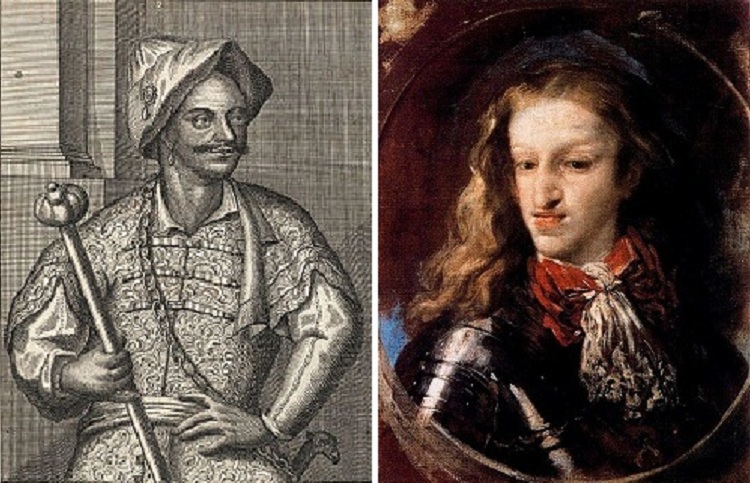Eduardo González
Religious customs, and in particular the Holy Week celebrations in late 17th-century Spain, made a deep impression on the ambassador of the Sultan of Morocco, Abd al-Wahhab al-Gassani, who was sent to negotiate the release of several prisoners with King Charles II. The mission failed, but Al-Gassani wasted no time and recorded his impressions in a book—‘Journey to Spain of a Moroccan Ambassador’—in which he described his astonishment at the relaxation of the Catholic fast compared to the rigidity of Muslim abstinence during Ramadan.
In 1690, the Moroccan Sultan Muley Ismail sent to Madrid his personal secretary, Abd al-Wahhab al Gassani, from Fez and of Andalusian origin, to negotiate with King Charles II the freeing of 500 Muslims that had been captured by Majorcan sailors.
The mission, according to one of its main experts, the historian Mariano Arribas, concluded in 1691 unsuccessfully, but the Sultan’s Ambassador did not lose his time, instead he gave us a very interesting example on how a Muslim saw the heavy baroque ceremonial of the Holy Week in the Madrid of the Austrians.
The ambassador arrived in Madrid in December 1690, when he was received with attention, accommodated in a luxurious mansion and given one hundred piasters a day for his expenses from the Spanish funds.
His Spanish experience, which started when he disembarked in Cadiz, is narrated by Al Gassani in his well-documented book Viaje a España de un embajador Marroquí (Trip to Spain of a Moroccan Ambassador), in which he describes the social, religious, cultural and administrative Spanish life, and in which he even writes about the history of the conquest of Al-Andalus and regrets the loss of the country at the hands of Christians.
In one of the most interesting moments of the book, because of the cultural and religious contrast it reflects, Ambassador Al Gassani shows his perplexity regarding the particular religiosity surrounding the Holy Week in Madrid.
To begin with, he thinks fastening during Lent is surprisingly light compared to the Ramadan he was used to. “They eat all day long during Lent and they call that fastening”, he narrates. “This fastening does not entail abstaining from drinking, eating or cohabiting with their wives, they only abstain from eating meat”, he continues. Moreover, “big personalities, those who have a health excuse” or those who pay “an authorization” freeing them from this obligation, “can eat meat with the Pope’s permission”.
As for processions and ceremonies, the book gives many details enriched with passages of the Gospels related to each celebration. For example, Al Gassani describes in great detail the celebration of Palm Sunday, in which, as ambassador, he witnessed how Charles II visited the chapel of the Palace to “listen to all those impieties”.
Maundy Thursday was, for the ambassador, the “day to break fastening, which they call Easter”. After explaining the ceremony in which the King washed feet at the Alcázar, Al Gadassi relates the processions of the day, in which “all Christians, priests and monks, leaders and lower clergy meet, take the crosses and images they adore out and walk with them around the city”.
“They go from one church to another and expressed their sorrow and piety by doing so. They pretend that the Crucified was treated that way”, the text adds, in which he describes one by one the steps and voluntary sacrifices made by some believers, who whipped themselves or were voluntarily crucified (“I have seen blood run down their feet, hands and heads while being hooked to a metal column… Their faces were covered to avoid being recognized”) to “imitate” Jesus.
On Good Friday, the Sultan’s Ambassador continues, “the Spanish people get out again with the image of the Crucified in the moment in which he is put on the Cross, when he has descended from the Cross and when he lies buried in his tomb”, while they “read psalmodies full of sadness”. “These days, everyone, the great and ordinary people, walk. It is said that John of Austria, the King’s brother, was the one who defended walking on procession days”.
Al Gassani concludes his chronicle on the Holy Week with a quotation from the Koran that affirms that Jesus “was neither dead nor crucified”, being instead “raised to Heaven by God”, and with a lamentation: “These lost people get their hopes up by persevering in their beliefs and evident mistakes”. “Satan has seduced them making them blind”, he points out, quoting Sura VII, Verse 21 of the Koran.






